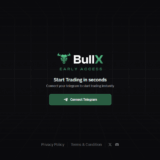In this article, I will discuss how to evaluate an NFT gaming project to help you make informed investment decisions.
With the rise of blockchain gaming, it’s crucial to assess factors like gameplay, tokenomics, the development team, community engagement, and security. A thorough evaluation can help you avoid scams and choose projects with real long-term potential.
All About NFT Gaming
NFT gaming merges gaming and blockchain technology, enabling players to possess, trade, and monetize in-game assets as non-fungible tokens or NFTs. NFT games offer true ownership unlike traditional games, allowing players to sell or trade the digital items on marketplaces.
The majority of these games use the play to earn(P2E) model in which gamers are rewarded with cryptocurrency or NFTs for playing.

Economics of the game, tokenomics, game mechanics, and community development, are very important. There are always risks like scams and market volatility that need to be evaluated carefully even if NFT gaming offers financial opportunities.
How To Evaluate an NFT Gaming Project

Evaluate the Game Idea
- Familiarize yourself with the gameplay and how this game significantly differs from others. Is it fun or purely a money-spinner?
- Assess how this game is different from other NFT games out there
- Figure out whether it is something that can entertain you in the long run.
Study the Development Team
- Perform background checks on the team like their claimed credentials and expertises.
- Examine if there is engagement and identity to be seen, is there a communication and leadership structure?
- Look for previous experience of the team in the gaming, blockchain, or technology sectors.
Analyze Tokenomics
- Analyze the functionality on the token within the game – is it a utility token, governance token, or reward?
- Assess whether the model of supply and demand is sustainable economically and environmentally friendly.
- Examine whether the token allocation is balanced and supports new growth development.
Investigate Blockchain Technology
- Find out what blockchain is used to host the game: Ethereum, Binance Smart Chain, etc.
- Mark the positives and negatives: What is the transaction time, gas fee, scalability, and ecological sustainability?
- Evaluate the blockchain in terms of connection with other platforms: Is it able to embrace cross platform support?
Investigate the NFTs
- Research their applications (land, characters, assets, etc.).
- Investigate infusion with other platforms and games.
- Validate the scarcity and value preservation assurance mechanisms.
Community and Social Engagement
- Measure the player base activity on game associated platforms (Discord, Twitter, External Forums).
- Look for positive sentiment and discussions about the game among players and investors.
- As it is known, the existance of active community means credibility and potential upside.
Review the Roadmap
- Assess if the schedule is attainable for the given timeframe and milestones.
- Assess if the development team is proving their claimed updates and meeting set targets.
- Confirm that there is intention to support the proposal in the longer-term for the game.
Partnerships and Collaborations
- Look for collaborations of this project with well-known brands or projects.
- Analyze if these association increase the project’s value or further enhance credibility.
Financial Entry and ROI
- Identify spending or resource allocation required to initiate gaming participation (NFTs, token purchases, etc.).
- Estimate how much benefit you can gain vs how much risk is there.
- Beware of pessimistic projects with promised nonexistent profits or returns.
Be Cautious
- Team does not share information.
- Focus is primarily on profits and not gameplay.
- Unclear objectives for tokens and the project.
Blockchain and Technology NFT

Decentralization – There is no network administrator.
Security – Data is protected with the use of cryptographic encryption.
Transparency – Any transaction made is verifiable by the general public.
Smart Contracts – The automation of the execution of contracts is performed without human intervention.
Roadmap and Vision How To Evaluate an NFT Gaming Project
Roadmap Contextualization
Is the roadmap realistic and not overly detailed? Do the major milestones have clear benchmarks (beta/alpha launches, token release, marketplace opening)? Does the provided timeline make sense or ask for something that is unrealistic?
Improvements & Progression
Has the given team met their past milestones on time? Are developments in line with the roadmap provided? Is there positive growth being witnessed within the project?
Long-Standing Potential
Is the project set to go beyond the short-term hyper focus? Are there plans for other cross-chain integrations, partnerships or scalability? What stance does the game take in comparison to its competitors?
Communication and Link Transparency
Is there an update on a progress made without having to wait long and could there be regular updates? Do any changes in the provided roadmap get effectively communicated? Is there any disposition from the given team to accept feedback or even any concerns?
Pros And Cons
Pros
Avoid Scams & Rug Pulls – Evaluating a project appropriately can help prevent falling victim to scams.
Assess Long-Term Potential – The project will have hype but also has sustainability.
Better Investment Decisions – It helps gamers select projects with solid tokenomics and genuine use.
Community & Market Insights – Helps understand the activity of players in order to avoid bad investments.
Security & Smart Contract Safety – Participation is enabled with greater safety due to audited and transparent contracts.
Cons
Time-Consuming Research – Studying the team and their roadmap as well as the economy can be tiresome.
Market Volatility – It’s possible for even the strongest of projects to be impacted by token price changes.
Uncertain Adoption – Well-built games may not gain the required interest from users and therefore, fail.
Hype vs. Reality – Sometimes, marketing overshadows actual development work that is going on.
Regulatory Risks – Laws may change and affect the financial model of the game.
It’s always good to do research, but the risks one has to take need to be managed as well. Evaluating an NFT gaming project is important.
Conclusion
To sum up, when assessing an NFT gaming project, it is crucial to evaluate gameplay alongside tokenonomics, the development team, community participation, safety, and the project’s roadmap. A well executed project has tangible objectives, a healthy ecosystem, and a robust user base.
Stay away from projects with fuzzy objectives and overtly ambitious claims. With proper due diligence, checking audits and assessing the long term value of the project can help mitigate potential value loss while maximizing the return.













